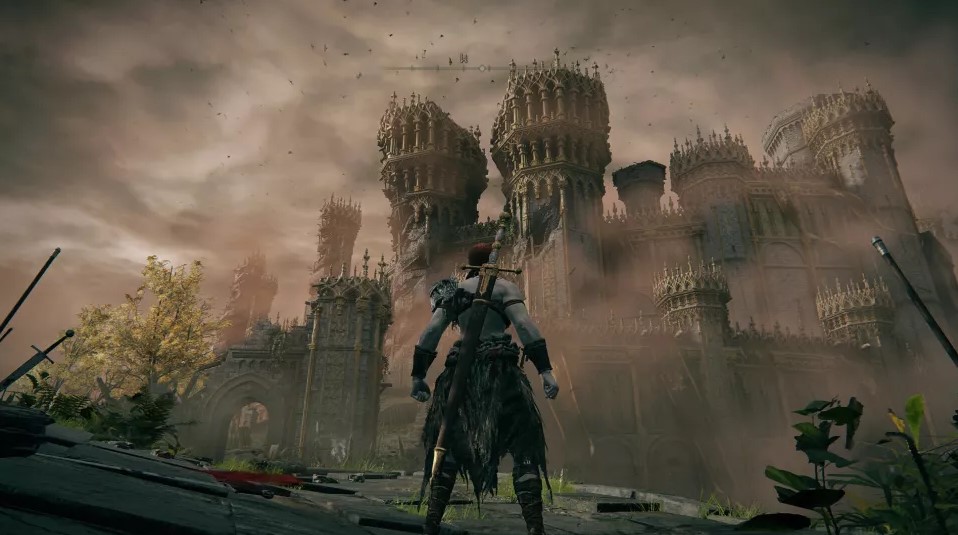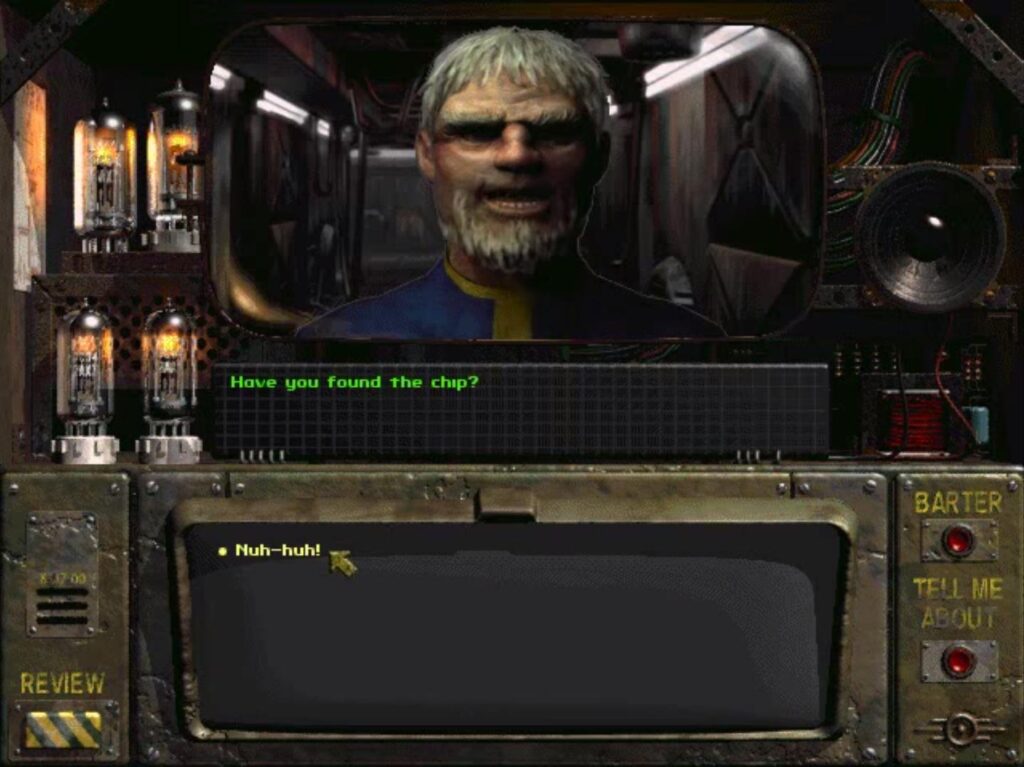I tend to think that “genres” in videogames are believed in, or thought to be real in a way that is massively over-stated. Games can manifest in a billion different ways that are still yet untried, and the genres that we know – things like FPS, Roguelite, RPG, etc – are really best thought of as marketing terms: not something that really describes what the game is in a useful way, but rather a loose categorization system that helps publishers signal to people, “if you liked games called RPGs in the past, you might like our new game”.
In any case, the truth is that there’s a bit of a self-fulfilling prophecy effect there, where not only do publishers and marketers think about games as being “in a genre”, but also game players and developers do as well. So what we end up with, over time, is a “tradition”, or traditions within a blanket term like “RPG”. There are so-called “ARPGs” like Diablo, JRPGs like Final Fantasy, CRPGs like Ultima, tactical RPGs like Fire Emblem, and so on.
Over the years, I have loved games in all of these categories. A couple of years ago I wrote an article called “The Project RPG” wherein I tried to describe some of these properties. I’ve recently taken that article down, for a couple of reasons. One was that it just simply was really poorly written; I’m not sure what happened there, but it was littered with sentence fragments and weird unrelated sidebars (apologies about that!). But the other reason is that it really failed to get at what’s important in an RPG – and this is something that I’m going to try and do now.
I love RPGs and I am really excited to make one myself someday. I would say that the three most important things for an RPG are as follows: Sense of Wonder✨, Plot Gravity⚔️, and Charm🎀.
Sense of wonder ✨
This is a huge one, and arguably it’s important to many kinds of games, and other forms of art as well. Specifically in the case of RPGs, though, I think it’s really important that the player finds themselves asking, “I wonder if I can X”. That X might be, “get to the top of that mountain”, or “combine this class with that class”, or “steal a precious quest item back from the NPC I gave it to”. JRPGs typically establish this in a more narrative or “thematic” way, introducing new content, whether it’s new cutscenes, new characters, or new areas to explore (although Final Fantasy V, which I’m playing right now, does it through its rather elaborate jobs system). The first example that comes to mind for me was the courtroom scene in Chrono Trigger, wherein the fact that I went to pick up a piece of jewelry before checking if my companion was okay was used against me in court! That kind of thing sets the brain going: what else is this game keeping track of that I don’t realize?
CRPGs and tactical RPGs tend to do this in a more systemic way, like giving players access to a new verb that allows them to interact with the world in a new way. Although it’s definitely important to notice that all RPGs use both systemic and narrative cues to create a sense of wonder. (Also, worth listening to my conversation with Pete Seicienski on his “Adventure Games” concept, which is very much related to this Sense of Wonder thing).
As this video talks about, as players play more and more games, it becomes more difficult for them to find this sense of wonder in new games – even more so when they become game developers themselves. This isn’t the fault of players. It’s the fault of developers for not exploring new kinds of stories, new kinds of worlds, new kinds of mechanics and so on. Far too often, developers employ the same old approaches to older beloved RPGs, give it a new coat of paint, and expect the formula that worked before to work again now. And sure, it will work again now, on some people: in particular, those who are newer to games like these.
Added: A helpful comparison here would be to look at Black Isle’s 1997 game Fallout, along with Obsidian Entertainment’s 2019 game Outer Worlds. Outer Worlds is often thought of as “Fallout in Space”, and it’s even created by two of Fallout’s creators, Leonard Boyarsky and Tim Cain. For this reason, a lot of the fans of the original Fallout were somewhat excited about Outer Worlds. However, when I got my hands on Outer Worlds, I was actually extremely disappointed in it. This is because by this point, not only had I of course played Fallout (as well as its sequels), but we’ve played dozens of games over the last 22 years whose designs were also inspired by Fallout.
Added: When Fallout first came out with its post-apocalyptic(esque) world, its retro-futurish aesthetics, and its very overt “difficult choices and harsh consequences” quest model, among other novel concepts, it was extremely ambitious and new. This newness and ambition was a big part of why, as a player playing the game back then, it was so good at inspiring a sense of wonder. But those same techniques won’t continue to work over and over again, especially when they come together in the same package.
What we should want is not “a new game like Fallout“, but instead, “a new game that made us feel the way that Fallout made us feel”. Which, ironically, means we have to make a game that isn’t like Fallout!
Of course there are dozens of established techniques that help designers create a sense of wonder – hiding information, increasing interactivity, increasing scope or density, etc – and I’m definitely not saying that you shouldn’t use these. You can and likely should use some, or even most of these (although in my opinion, we definitely need to ditch the “sprawling vista” – I’ll write an article on that someday). Even a handful of new mechanics or other properties are often enough to help create that question in people’s minds: “what else might be possible in this game?” And remember: a lot of this is going to be stagecraft. You don’t have to build a fully functioning economy or put something behind every single door, or whatever. You just have to do enough to suggest to the player that there is more than meets the eye.
Aside: down with sprawling vistas!
Actually, let me GO OFF for a second right now about the “sprawling vista” and what it represents to me.

AAA games have largely taken basically a snapshot of a glimmer of a certain Sense of Wonder that people have indeed felt when gazing open some huge open landscape or a massive castle like the one above, sucked the soul out of it and flattened it into a mostly empty “picture that you can walk through”. Grand Theft Auto, The Witcher 3, Skyrim and even Elden Ring all come to mind for me as games that have these great, massive open spaces which, for a moment, might inspire some wonder. But after a short time playing any of these games, it starts to dawn on you that they will not surprise you. Even Breath of the Wild barely contains enough surprising things in its massive world to maintain that aura of intrigue and mystery when exploring it (arguably, it doesn’t). Games that are this massive must be made in an “assembly line” sort of way; they’re just too expensive to put actual surprises into. Actual surprises are costly, they create bugs and instability, they create imbalances. AAA games are first and foremost products and their “smooth functionality” is prized above all else.
I was struck recently when playing Elder Scrolls III: Morrowind, that they have a pretty harsh fog that blocks you from seeing anything more than 50 or so feet out in front of you. I was installing some mods, nothing crazy, just some simple quality of life stuff, and someone mentioned to me that there is a mod that lets you push the fog back, including pushing it all the way back. And what you notice when you do that is that you can kind of see the whole world. Like you realize that the world is actually not all that big. It’s actually a somewhat small world, but it feels big when you’re going through it because it’s so dense. After realizing this I had the thought that maybe we should consider bringing fog back…
To clarify: a “sprawling vista” isn’t actually a bad thing. It’s more just that it’s a pattern which incentivizes “a gigantic space”, which lends itself to emptiness and “assembly-line”-style production. You absolutely can have a great RPG with a sprawling vista in it, just to be super clear.
Plot gravity ⚔️
This one is simple: at or near the beginning the game, the player should have some sense of who they are and what it is they’re trying to do, in a general sense. At all times, players should have some sense of how close they are getting to reaching that goal, and they should care about doing achieving it.
Here’s a handful of good examples:
- Final Fantasy VII: you’re part of a terrorist organization that is doing a bombing mission to try and fight back against an evil empire.
- Fallout: your community, which lives in an underground vault, needs a new water chip, a piece of technology that provides fresh drinking water. You need to go get them a new one.
- Disco Elysium: awoken from a drunken stupor, you’ve lost your memory and you have a murder to solve.

There are countless examples. They can be simple, or they can be complex. But what’s important is that you always feel that basic “pull” towards that conclusion, which really isn’t as simple as it sounds to create. Setting that up properly is an effort in storytelling, a discipline all its own distinct from game design. The more complex your story is, the more storytelling skill you’ll probably need to pull it off, so if you don’t have a lot of experience in this arena, consider going with a basic plot that’s easier to understand. If you can only have one of these two things – an understandable plot, or a novel plot – go with the understandable one. That “plot gravity” will really help players continue to care about progressing, even when stuff gets annoying somewhere.
Charm 🎀
Ultimately, the player has to like the characters, the world, the art style, the music, and so on. This one is the most subjective, for sure; clearly, some people are charmed by Call of Duty and Gears of War, games which for me are completely alienating and gross. I’m generally interested in colorful, musical, fashionable, design-y games, games with a good sense of humor but which also aren’t afraid to tell serious, meaningful, personal and political stories. Which clearly is a pretty high bar. JRPGs, in general, are a lot more charming for me than western RPGs, if for no other reason that they have incredible musical soundtracks with memorable melodies. That said, one of my favorite characters from any videogame is probably Morte from Planescape: Torment.
Obviously, as I said, charm is going to be a very subjective thing. However, an objective lesson that I think I can put forward with regards to charm is to focus on specificity. For those who don’t know, Morte is a character from Planescape: Torment who is nothing but a floating skull with eyeballs. Part of what makes him charming is that he’s voice acted by Rob Paulsen, who was Yakko and Pinky from the Animaniacs. But also part of him is that he’s so goofy in this otherwise extremely morose, dark world. It’s also that he calls you “chief” and has a pretty positive attitude (which is itself masking layers of trauma). It’s so many qualities about him, as a part of this world, that are so specific. There isn’t really anything else like him.

I remember the moment I met Morte. I was going through Torment and kind of “hanging in there”; the beginnings of many RPGs are difficult for me as the hooks haven’t gotten in yet, but several people had sworn up and down that I had to play this game. But once I met Morte, I was like, okay, I’m sold on this. If this game has the range and creativity and sense of humor and overall well-roundedness to have this character in it, I like it. I am charmed.
By comparison, let’s talk about Baldur’s Gate, the original game, a game very much in the same genre, that uses literally the same (awful) Infinity Engine for its combat. I played a good 10 or so hours in that game and the “I am charmed” moment never came. The characters struck me as all pretty safe, “normal high fantasy characters”. Obviously, many will disagree with me as this is an extremely beloved game. But I found it to be an utterly charmless, boring experience.
Charm is not the same as simply loving a game. I love many games which are charming (Final Fantasy VI) and many games that aren’t all that charming (Arcanum or Fallout). Charm, in this article at least, is more a reference to being pleased by the aesthetics, characters, music, or other such things, distinct from the gameplay or plot.
I guess on some level, you’re charmed when a game resonates with you, or when you see yourself in it. But in order for anyone to see themselves in it, the creators have to put themselves into it. It can’t just be an automatic, straightforward thing. A much better example of anti-charm, perhaps, would be mobile Gacha games, all of which have bright and colorful characters, and yet are utterly soulless. Part of what makes them so soulless is their lack of specificity: we aren’t seeing the feelings or aesthetics of any particular human, but rather the almost AI-generation-like amalgamation of what the marketing department thinks others will like.
I’ve written this before, but I wanna make an RPG someday, and these are some of my core principles going in. What do you think?
—
If you enjoyed this article, consider supporting my work on Patreon!
You must be logged in to post a comment.